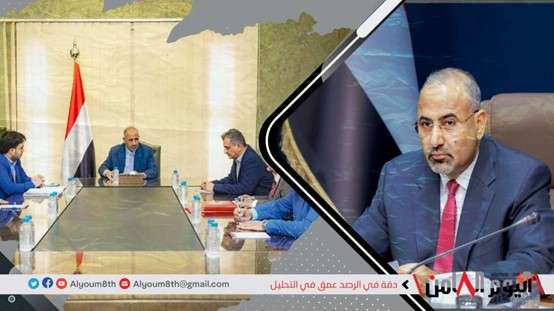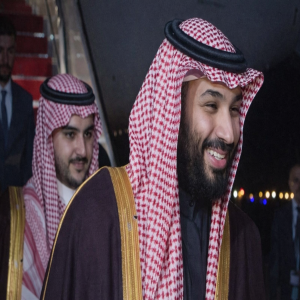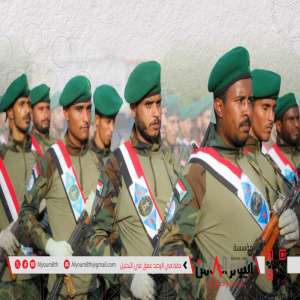The Southern Transitional Council renews the refusal to grant the Houthis 80% of the resources.
Iranian proxies in Yemen talk for the first Saudi promises about obtaining a percentage of the resources of the south
"Aidarous al-Zubaidi said in an interview with the British Newspaper the Guardian that the West must accept a new reality in which the Houthis control northern Yemen and the south is run by the secessionist Southern Transitional Council."

Major General Aidaroos Al-Zubaidi, President of the Southern Transitional Council (stc)
The Iranian proxies in Sana'a said that Saudi Arabia promised them to pay the salaries of employees in areas under their control from oil resources, despite the fact that the Southern Transitional Council always confirms its rejection of the proposal to "grant the Houthis 80% of the resources of the southern governorates, which was confirmed by the head of the Council, "Aidarous Al-Zubaidi", during his presidency on Sunday, an expanded meeting of the leaders of the southern military and security armed forces via video conference.
The meeting stood in the face of the continuous escalation of the Houthi militias in the various lines of contact in the fronts of Bayhan, Karsh, Tur Al-Baha, Yafa and Al-Dhale, and the actions of the terrorist elements who targeted with live bullets the peaceful mass mobilization that came out in Seiyun in Wadi Hadramawt to commemorate the 29th anniversary of the Southern Land Day on Friday, July 7, in front of the forces of the First Military Region.
Al-Zubaidi stressed that protecting the people of the south is the responsibility of the southern armed forces and security services, and the southern resistance, and that it will do its duty to protect Hadramawt from terrorism that targets it in a timely manner.
In an interview with Britain's Guardian newspaper, Zubaidi said the West must accept a new reality in which the Houthis control northern Yemen and the south is run by the secessionist Southern Transitional Council.
The head of the Southern Transitional Council (STC) and deputy head of Yemen's UN-recognized government said planned talks on the country's future must be reshaped to face this new reality, including by putting the issue of a separate southern state at the forefront of discussions. The talks are largely controlled by Saudi Arabia, which wants to find a way to extricate itself from a war that is estimated to have killed more than 250,000 people.
Al-Zubaidi also tried to reassure the West that the sea lanes, ports and oil fields in strategically vital southern Yemen would be safe under a STC-led state, saying, "We will apply all UN rules and international law." The alternative, he warned, was for the Iran-backed Houthis to take control of the Bab al-Mandab Strait, an important waterway for international trade.
He also pledged to hold a UN-supervised referendum before southern independence: "We are committed to abiding by all international laws and UN charters for referendums. We can set up voting lists for this now." He said he would cooperate with an international criminal court to investigate war crimes.
Britain's Guardian newspaper said in a report translated by Al-Youm Al-Thamen newspaper that the Southern Transitional Council would like to return to the period between 1967 and 1990, when Yemen was divided into two parts with a separate socialist state in the south. "That state has its pros and cons, but then you won't find anyone in basic need and the state respects human rights. We used to be labeled as extreme socialists, but we are open civilians. We are moderate nationalists – neither Islamist nor secular. We are in the center. We do not embrace any political movement based on religion."
Zubaidi, a former army commander and governor of Aden, has survived car bomb attacks and has received strong support from the United Arab Emirates since he formed the Southern Transitional Council in 2017.
The STC is the most organized organization in the eight southern provinces including Aden, he said, and the dominant military force capable of fighting the Iran-backed Houthis.
The new reality is that the Houthis control the north and the STC rules in the south."
Saudi Arabia is reluctant to embrace the STC in part because it means Riyadh has invested eight years of war in Yemen only to lose control of the north to the Houthis and the south to the UAE-backed Southern Transitional Council. The Saudis, who are increasingly at odds with the UAE in Yemen, are actively working to limit the STC's influence in the large, oil-rich Hadramawt region in the southeast.
The West has so far bet on an integrated country in which the Houthis share power with the UN-recognized government.
Peace in Yemen was expected to be one of the first fruits of the Saudi-Iranian rapprochement in April, but despite unprecedented direct talks between Riyadh and the Houthis and the continuation of a de facto ceasefire, there has been no breakthrough.
Riyadh has not included Yemen's UN-backed government and the Southern Transitional Council (STC) in its talks with the Houthis, despite the formation of a government negotiating team. Zubaidi said the peace process had stalled and in any case was based on old assumptions about the ability to change a unified country. "The UN talks need to be redesigned. They have to deal with the new realities of the Houthis in the north and the STC in the south. We must participate and discuss the southern issue from the beginning."
The head of the Yemeni-Houthi Council in Sanaa stressed that "our people have made all sacrifices in order to preserve our present and build the future of our generations."
He pointed out that the negotiations between his group and Saudi Arabia stopped at the point of handing over the salary from our oil and gas wealth, and the Saudi was ready to pay it from his own and not from our oil and gas wealth.
Al-Houthi claimed that what the Saudis want is to steal Yemen's oil wealth and transfer it to the Saudi National Bank and then give charity to the employees of our people, which was rejected.
Al-Mashat accused Saudi Arabia of responding to the warning targeting the city of Taiz, who are the most affected by this political current.
The STC moved in May to consolidate its influence when it completed a lengthy political dialogue on a vision for the south that culminated in two members of the eight-member Presidential Leadership Council, the executive body of the UN-recognized government, joining the STC. Three of the eight seats are now occupied by the Southern Transitional Council. Zubaidi denied the move was a power grab. "It was necessary to strengthen the cohesion of the south and prepare for any Houthi attacks. The Houthis are strengthening themselves and can attack at any time."
Zubaidi is deeply upset that Yemen's UN-recognized government still does not adequately reflect the strength of the STC, saying it is not a functioning body. "It is time to change the government because it is incapable and unable to provide the basic services required," he said. It was wrong not to have women in the Government.
He expressed sadness that the Ukraine war meant that interest in Yemen's humanitarian crisis was fading. "Yemen needs the world's attention more than ever. The currency depreciation has hit hard. "There is poverty, cholera outbreaks and power cuts."



